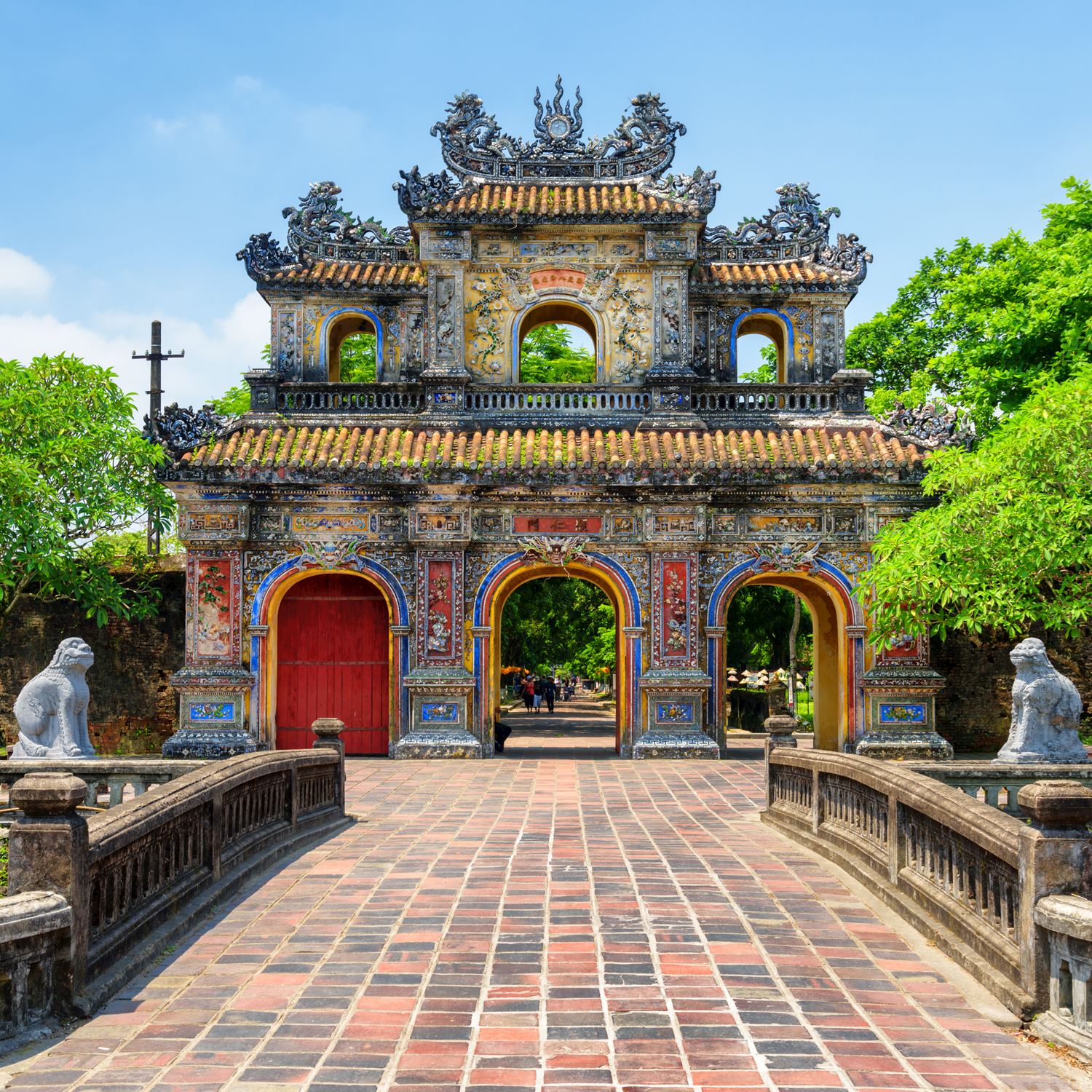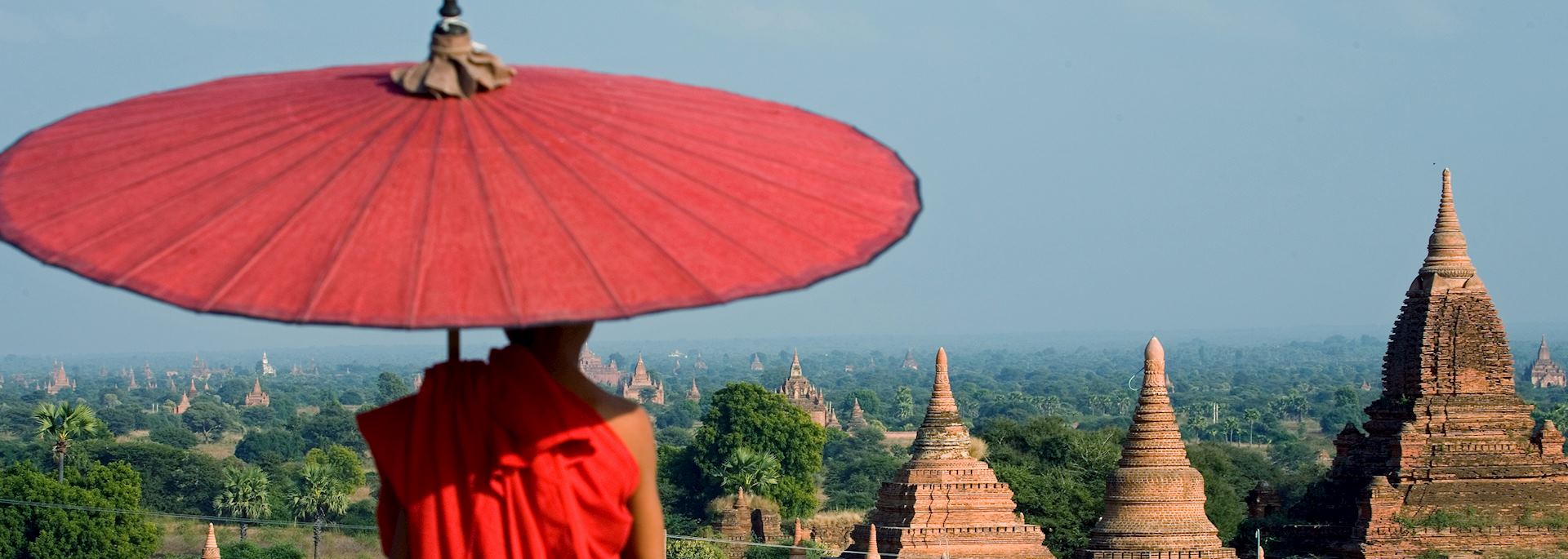Practical Information
We have extensive knowledge of Myanmar as we have been operating there since our company was founded in 1995.
The changes during this time have been dramatic and there are now many more high quality character hotels and resorts to choose from, a more developed infrastructure and a better understanding of what visitors will enjoy.
Bagan and Inle Lake are still 'must-see' sights, but we are keen to share the delights of some of the lesser-known areas and we recognise that it is the daily interaction between the visitor and the Burmese that holds the greatest reward.
Getting around
Yangon (Rangoon) is usually your entry and exit point by air, although flights from Thailand into Mandalay are increasing in regularity.
There are also several hassle-free overland border crossings from Thailand and Southwest China which provide alternative options for the more adventurous.
Myanmar is a deceptively large country and few roads are of good quality so flights are usually the quickest way to cover longer distances. Where flying is not an option we use private vehicles or river journeys. The train network is fairly extensive but is not comfortable and rarely convenient.
Is it safe and ethical to visit Myanmar?
There are a number of considerations we feel it’s important to understand if you’re thinking about visiting Myanmar, in light of the reported Rohingya crisis and other civil unrest. We monitor the situation closely, following Foreign & Commonwealth Office (FCDO) advice and by talking to our contacts on the ground. The affected areas are well away from visitor areas, and we believe that, ethically, visiting Myanmar remains the right thing to do. You can read about the situation in full, from the head of our Southeast Asia team, in our article Is it safe and ethical to visit Myanmar?
Language
The official language is Burmese, and there are over 100 distinct languages and dialects spoken in Myanmar. English is spoken in business circles.
Food and drink
The regional food is hot and spicy. Fish, rice, noodles and vegetables spiced with onions, ginger, garlic and chillies are the common local ingredients. Local dishes include Lethok Son (a spicy vegetarian rice salad), Mohingal (fish soup with rice) and Oh-no Khauk Swe (noodles, chicken and coconut in a spicy sauce). The avocados by Inle Lake are very good and Mandalay grows the best mangoes!. Delicious fruits are available in the markets and food stalls appear on the corners of most large towns. Chinese and Indian cuisine is offered in many hotels and restaurants.
Tea is a popular drink and an integral part of Burmese life. On almost every street in some of the larger cities you will be able to find a tea shop. A simple, open-air affair of low tables and stools that spill out onto the pavement, tea here is served sweet and thick with condensed milk and an assortment of cakes. You pay for what you take from the tray on the table. Coffee is not common but is becoming increasingly popular. Beer, rum, whisky and gin are generally available.
Money and expenses
The local currency in Myanmar is kyat, and outside of Yangon and the big hotels this is the preferred currency. US dollars are also accepted widely as currency. The exchange rate varies widely between different places. The official exchange rate is US$1 - 6 kyat, but you will never come across this. It is much more likely to be between 700 kyat and 950 kyat to the dollar, depending on where you are. The kyat is a very fluid currency, so it's better to keep your money in dollars and change it into kyat as and when you need to. Do not change money at the airport as the exchange rate is terrible.
Credit cards are not widely accepted. You may find that some hotels in your itinerary will accept payment by card but it is not a reliable service and can be withdrawn at any time. Most hotels will add a hefty surcharge of between 4-7% if paying by credit card. Furthermore, there are no ATMs in Myanmar. Euros are starting to be accepted in some of the bigger more international style hotels. Traveller's cheques are also not widely accepted, so it is best to take all the money you will need in US dollars cash.
Social conventions and etiquette
The people of Myanmar are very conservative in their dress and behaviour and you should pay special attention to respecting their Buddhist traditions wherever you go, but particularly in temples and monasteries. Shorts and sleeveless shirts are frowned upon and in fact, are not allowed in shrines, temples and monasteries. Short skirts are also not recommended. You must also remove your shoes before entering such sites and it is wrong to point your feet toward a Buddha image. It is a common courtesy in Myanmar to use both hands when handing something to somebody else.
Travel Advice
Our country specialists can advise on any safety concerns you may have. For current information, please refer to the .
When to go to Myanmar
You'll find temperature and rainfall information, together with a month-by-month guide on visiting, on our guide for when to go to Myanmar.
More Information
-
Flight Time
14½ hours (Yangon, via Bangkok) -
Recommended Airlines
EVA Airways, British Airways, Malaysia Airlines, Thai Airways -
Time Zone
UTC +6:30

